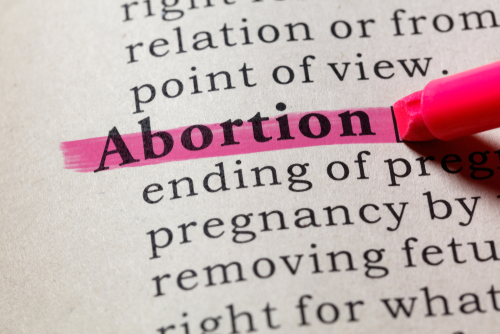Federal appeals court upholds ban on common second-trimester abortion method

Image from Shutterstock.
An en banc federal appeals court has upheld a Texas law that bans dilation-and-evacuation abortions unless the fetal heartbeat is stopped before the procedure.
The 5th U.S. Circuit Court of Appeals at New Orleans ruled Wednesday that abortion providers challenging the law did not prove it imposes “an undue burden on a large fraction of women.”
Publications with coverage include the New York Times, Reuters, the Associated Press, Law360 and the Texas Tribune. A press release is here. How Appealing links to the Aug. 18 opinion.
Dilation-and-evacuation abortions—Texas lawmakers call them dismemberment abortions—are the most common abortion method in the second trimester. Those who oppose the Texas law say methods used to stop the heart of the fetus can pose health risks, and the law effectively bans the dilation-and-evacuation procedure.
The plurality opinion by Judges Jennifer Walker Elrod and Don R. Willett said doctors performing dilation-and-evacuation abortions can safely comply with the Texas law by using suction to remove the fetus or digoxin injections to stop the heartbeat.
According to Reuters, the 5th Circuit is the first federal court to uphold a ban on the dilation-and-evacuation procedure.
One of the judges who concurred only in the judgment, Chief Judge Priscilla Owen, said she agreed that the Texas law was constitutional, but there was no need to decide that a 2020 concurring opinion by U.S. Supreme Court Chief Justice John G. Roberts Jr. controlled.
Roberts voted with four liberal justices in June Medical Services v. Russo to strike down a restrictive Louisiana abortion law but agreed with the court’s four conservatives in rejecting a balancing test to evaluate abortion laws. Roberts said the undue burden standard applied.
The Texas law, passed in 2017, has an exception in cases of a medical emergency. The law has never taken effect because of a federal judge’s injunction.
Texas passed a more restrictive law this year, scheduled to take effect Sept. 1, that bans abortions as early as six weeks, according to the Texas Tribune. Opponents are seeking to block that law, as well.
Energized by a more conservative Supreme Court, states are increasingly passing restrictive abortion laws. The New York Times cited findings by the Guttmacher Institute that during the 2021 legislative season, more abortion restrictions were signed into law than at any other time.
The case is Whole Woman’s Health v. Paxton.



